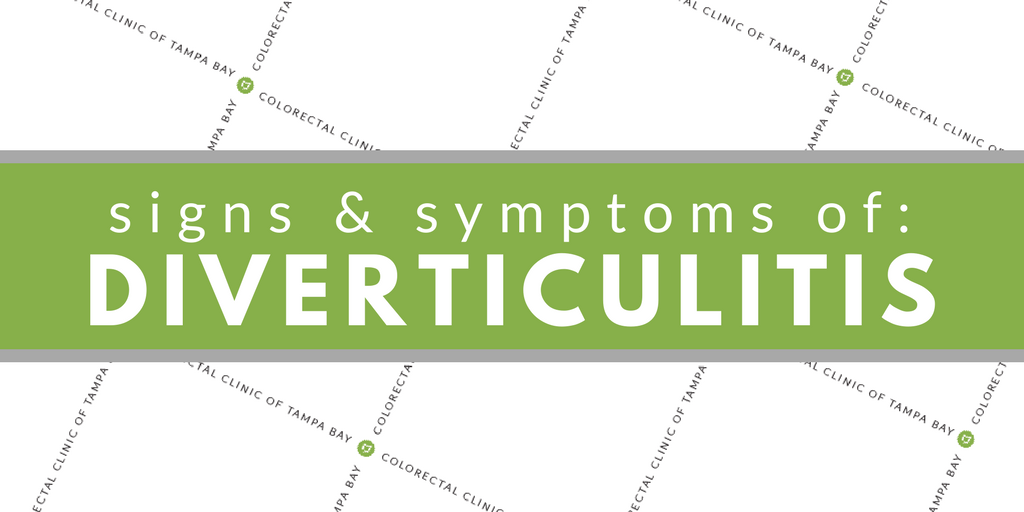Diverticulitis is a disease where the small, bulging pouches that form in the lining of your digestive system become inflamed or infected. Infection occurs when outpouchings become blocked with waste, allowing bacteria to build up. Diverticulitis is most often found in the colon of people older than 40 years, but the stages of diverticulitis can vary from case to case.. Below are a few symptoms and signs that you may have diverticulitis.
Signs and Symptoms of Diverticulitis:
You have constant pain or tenderness in your abdomen. This includes cramps, bloating, gas, and pain. It is very important to seek medical advise if they become worse as you move or a cough.
You have persistent constipation or diarrhea. Experiencing diarrhea or constipation every so often is not uncommon. If diarrhea or constipation lasts longer than four weeks, it is a sign that something could be wrong.
You have felt nauseous or vomited. If vomiting occurs with other symptoms such as constipation or abdominal pain, it could be a sign of diverticulitis. Vomiting may occur because there is a blockage in the colon from the disease. This causes painful stomach cramps and constipation, which may eventually lead to vomiting.
You have noticed blood in your stool. If you notice your stool is the color red or black, contact your doctor immediately.
If you are unexplainably losing weight. The symptom of diarrhea contributes to weight loss, so these two symptoms typically go together. Abdominal pain can also lead to weight loss as it prevents one from eating with a normal appetite.
You experience chills or fever. This is usually a symptom shown when the disease is in a serious stage. It is important to recognize if the fever is accompanied by any of the other symptoms listed above.
If you have one or more of the above symptoms it is best to contact a doctor who specializes in treating diverticulitis immediately. Severe abdominal pain, fever, nausea, and changes in your bowel habits all require diverticulitis treatment. Mild diverticulitis can be treated with rest, antibiotics or an altered diet. Severe diverticulitis may require surgery. The appropriate treatment can be prescribed by a diverticulitis specialist.

